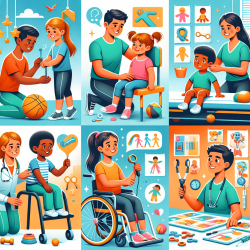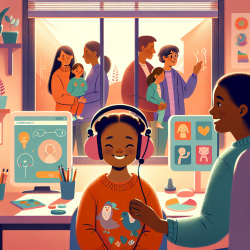As a speech-language pathologist deeply committed to creating positive outcomes for children, it's essential to leverage the latest research to enhance our practice. One such valuable resource is the research presented at the Proceedings of the Virtual 3rd UK Implementation Science Research Conference. This research provides critical insights into the implementation of evidence-based practices in various healthcare settings, including speech and language therapy. By applying these insights, practitioners can improve their skills and outcomes for children receiving therapy.
Understanding Implementation Science
Implementation science is the study of methods to promote the systematic uptake of research findings and other evidence-based practices into routine practice. It addresses the gap between what we know works and what is actually practiced. This field is crucial for speech-language pathologists who aim to incorporate the best evidence into their therapeutic approaches.
Key Findings from the Conference
The research presented at the conference highlighted several key findings that can be directly applied to speech and language therapy:
- Inter-professional Collaboration: Effective implementation often requires collaboration across different professional disciplines. For speech-language pathologists, this means working closely with educators, psychologists, and other healthcare providers to create a holistic approach to therapy.
- Training and Support: Continuous professional development and support are critical for successful implementation. The research emphasized the importance of training programs that equip practitioners with the necessary skills and knowledge to implement evidence-based practices.
- Patient and Family Engagement: Engaging patients and their families in the therapeutic process can significantly enhance outcomes. This involves clear communication, setting realistic goals, and involving them in decision-making processes.
- Monitoring and Evaluation: Regular monitoring and evaluation of the implementation process are essential to ensure fidelity and effectiveness. This includes collecting data on patient outcomes and adjusting strategies as needed.
Practical Steps for Practitioners
To integrate these findings into your practice, consider the following steps:
- Develop a Collaborative Network: Establish a network of professionals from various disciplines who can provide support and share insights. This can include regular meetings, joint training sessions, and collaborative case reviews.
- Invest in Training: Participate in continuous professional development opportunities focused on implementation science and evidence-based practices. Encourage your team to do the same.
- Engage Families: Develop strategies to actively involve families in the therapy process. This can include creating educational materials, holding family meetings, and providing regular updates on progress.
- Implement Monitoring Systems: Set up systems to regularly collect and analyze data on therapy outcomes. Use this data to make informed decisions and adjust your approach as necessary.
Encouraging Further Research
While applying existing research is crucial, it is equally important to contribute to the body of knowledge in speech and language therapy. Practitioners are encouraged to engage in research activities, whether through participating in studies, conducting their own research, or collaborating with academic institutions. This not only enhances personal practice but also advances the field as a whole.
Conclusion
By integrating the insights from the Proceedings of the Virtual 3rd UK Implementation Science Research Conference into your practice, you can enhance the effectiveness of your speech and language therapy services. Embracing inter-professional collaboration, continuous training, family engagement, and robust monitoring systems are key steps towards achieving better outcomes for children.
To read the original research paper, please follow this link: Proceedings of the Virtual 3rd UK Implementation Science Research Conference.










